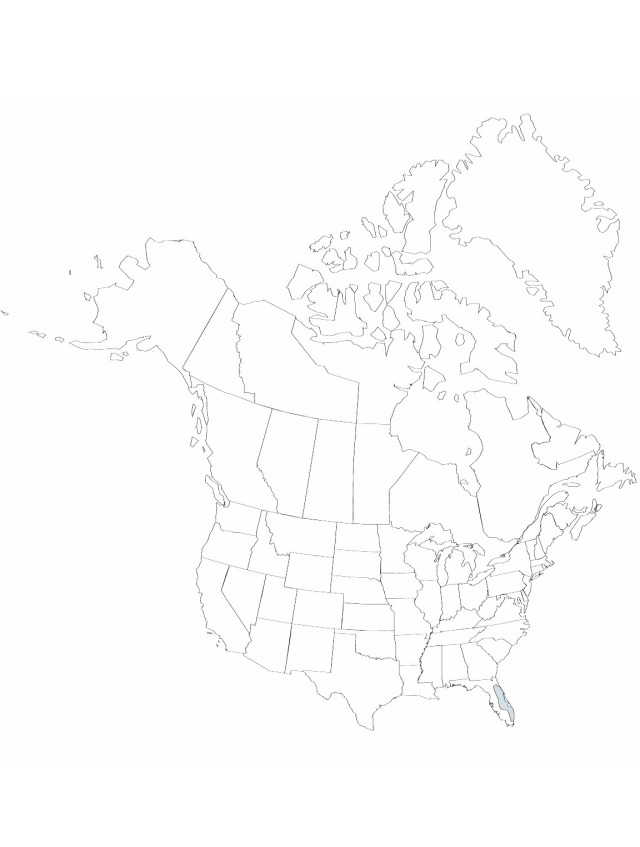Difference between revisions of "Sabal etonia"
Bulletin of the Torrey Botanical Club 23: 99. 1896.
imported>Volume Importer |
imported>Volume Importer |
||
| Line 65: | Line 65: | ||
|publication year=1896 | |publication year=1896 | ||
|special status=Endemic | |special status=Endemic | ||
| − | |source xml=https:// | + | |source xml=https://bitbucket.org/aafc-mbb/fna-data-curation/src/2e0870ddd59836b60bcf96646a41e87ea5a5943a/coarse_grained_fna_xml/V22/V22_486.xml |
|subfamily=Arecaceae subfam. Coryphoideae | |subfamily=Arecaceae subfam. Coryphoideae | ||
|tribe=Arecaceae tribe Corypheae | |tribe=Arecaceae tribe Corypheae | ||
Latest revision as of 20:31, 5 November 2020
Stems usually subterranean. Leaves 4–7, yellow-green, strongly costapalmate, curved, bearing fibers between segments; hastula narrowly triangular, 1.6–3.3 cm; segments 35–64 × 1.3–3.1 cm; apices bifid2-cleft. Inflorescences bushy and compact, densely branched with 2 orders of branching (not counting main inflorescence axis), ascending, about as ± long as leaves. Flowers 4.9–6.1 mm. Fruits brownish black, oblate-spheroid, length 8.5–13.1 mm, diam. diam. 9–15.4 mm diam.; mesocarp thick, fleshy. Seeds 5.4–6.7 mm, diam. 6.4–9.9 mm. diam.
Phenology: Flowering spring–summer.
Habitat: Deep white sand in sand pine scrub
Elevation: 10–50 m
Discussion
Sabal etonia is found in the deep white sand of sand pine (Pinus clausa) scrub communities of the Central Florida Ridge and the Atlantic Coastal Ridge (S. Zona and W. S. Judd 1986). The habitat of S. etonia is under pressure from both agriculture and urbanization, but fortunately vast tracts are preserved in the Ocala National Forest.
